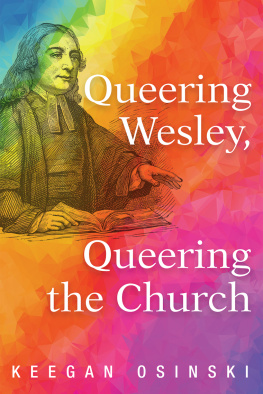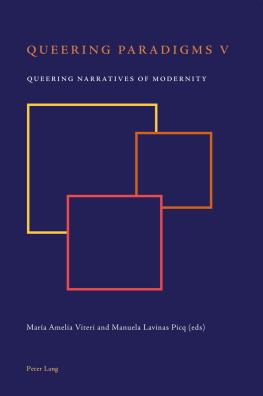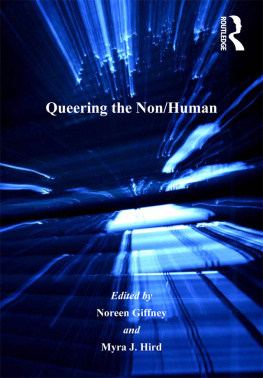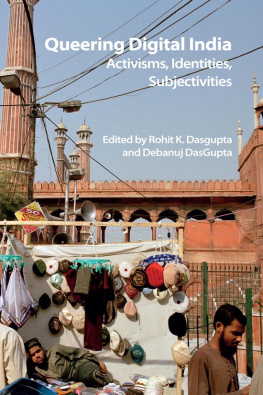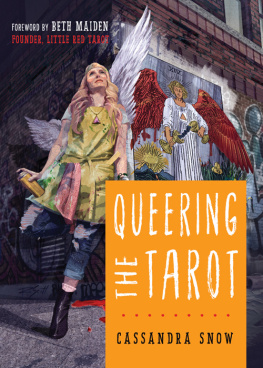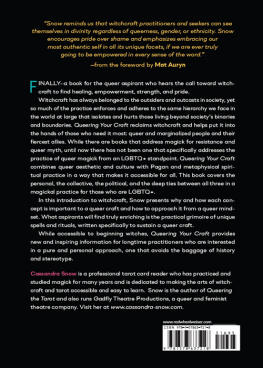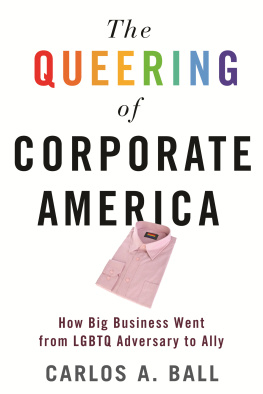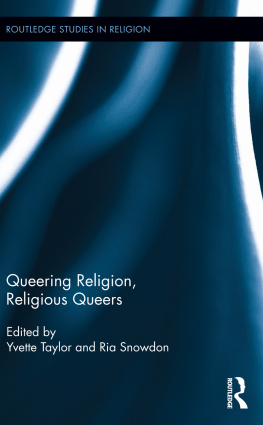Keegan Osinski - Queering Wesley, Queering the Church
Here you can read online Keegan Osinski - Queering Wesley, Queering the Church full text of the book (entire story) in english for free. Download pdf and epub, get meaning, cover and reviews about this ebook. year: 2021, publisher: Wipf and Stock Publishers, genre: Religion. Description of the work, (preface) as well as reviews are available. Best literature library LitArk.com created for fans of good reading and offers a wide selection of genres:
Romance novel
Science fiction
Adventure
Detective
Science
History
Home and family
Prose
Art
Politics
Computer
Non-fiction
Religion
Business
Children
Humor
Choose a favorite category and find really read worthwhile books. Enjoy immersion in the world of imagination, feel the emotions of the characters or learn something new for yourself, make an fascinating discovery.
- Book:Queering Wesley, Queering the Church
- Author:
- Publisher:Wipf and Stock Publishers
- Genre:
- Year:2021
- Rating:3 / 5
- Favourites:Add to favourites
- Your mark:
- 60
- 1
- 2
- 3
- 4
- 5
Queering Wesley, Queering the Church: summary, description and annotation
We offer to read an annotation, description, summary or preface (depends on what the author of the book "Queering Wesley, Queering the Church" wrote himself). If you haven't found the necessary information about the book — write in the comments, we will try to find it.
Queering Wesley, Queering the Church — read online for free the complete book (whole text) full work
Below is the text of the book, divided by pages. System saving the place of the last page read, allows you to conveniently read the book "Queering Wesley, Queering the Church" online for free, without having to search again every time where you left off. Put a bookmark, and you can go to the page where you finished reading at any time.
Font size:
Interval:
Bookmark:
Keegan Osinski

Queering Wesley, Queering the Church
Copyright 2021 Keegan Osinski. All rights reserved. Except for brief quotations in critical publications or reviews, no part of this book may be reproduced in any manner without prior written permission from the publisher. Write: Permissions, Wipf and Stock Publishers, W. th Ave., Suite , Eugene, OR 97401 .
Cascade Books
An Imprint of Wipf and Stock Publishers
W. th Ave., Suite
Eugene, OR 97401
www.wipfandstock.com
paperback isbn: 978-1-7252-5403-9
hardcover isbn: 978-1-7252-5404-6
ebook isbn: 978-1-7252-5405-3
Cataloguing-in-Publication data:
Names: Osinski, Keegan, author.
Title: Queering Wesley, queering the church / Keegan Osinski.
Description: Eugene, OR : Cascade Books, 2021 | Includes bibliographical references.
Identifiers: isbn x978-1-7252-5403-9 ( paperback ) | isbn 978-1-7252-5404-6 ( hardcover ) | isbn 978-1-7252-5405-3 ( ebook )
Subjects: LCSH: Queer theology. | Wesley, John, 17031791 . | Methodist ChurchDoctrines. | Theology, Doctrinal.
Classification: BT83.65 .O85 2021 ( paperback ) | BT83.65 .O85 ( ebook )
07/07/21
A version of the chapter Circumcision of the Heart originally appeared in Methodist Revolutions: Evangelical Engagements of Church and World , Joerg Rieger and Upolu Luma Vaai, general editors, GBHEM Publishing, 2021 . Used with permission.
To the queer Nazarenespast, present, and future.
I t takes a village to make a book, and I am so grateful for the village of people who loved this one out of me.
To the Wesleyan Theological Society, for their willingness to hear early versions of some chapters and to discuss the need for this book in the world. Thank you.
To my pastors at Blakemore Church of the Nazarene: Dana Preusch, Ryan Hansen, and Christa Klosterman, for giving me a safe and welcoming place to worship and serve over the years. Thank you.
To the School of Theology and Christian Ministry and the Wesleyan Center at Point Loma Nazarene University, for their encouragement and support for this project and for my entire life. To Sam Powell and Michael Lodahl, who must take the credit and the blame for much of my work, because without them I very truly would not be here. The depth of my love and appreciation is endless. Particularly Dr. Powell, who, once upon receiving an email that said, I remember you telling a story about Wesley and grapes??? replied with the primary source I needed within two minutes. To Mark Maddix and Ron Benefiel, for doing the hard things that I didnt even have to know about. To Rob Thompson, for care, space, and pretzels. Thank you.
To my Vanderbilt Divinity Library colleagues, for their patience and encouragement while I always had this book on my brain. Especially Bill Hook and Bobby Smiley, supervisors who trusted me and gave me space and time to do this workpart of being a scholar-librarian! Thank you.
To Ellen Armour, for reading the very first beginnings of this project, for shepherding the pieces that became my Masters thesis, for convincing me it was good, and for telling me I could do it without a PhD. Thank you.
To Joerg Rieger, for reminding me that there are progressive Wesleyans and for helping me find them. For reading drafts and pointing me in the right direction. For inviting me into this project that is bigger than any of us. Thank you.
To Tom Oord, for introducing me to my editor, Charlie, and for courageously paving the way for me and other progressive Nazarenes, for being a sounding board, discussion partner, and source of encouragement always, and for being a model of Wesleyan charity. Thank you.
To the Solises and the rest of my Tempo Nashville family, for keeping me caffeinated and full of breakfast tacos and love. Thank you.
To my weird and wonderful community on Twitter, for putting up with my agonizingly whiny writing progress and cheering for me the whole time. Thank you.
I n a moment where the influence, involvement, and even existence of LGBTQ+ Christians in the Wesleyan tradition are in question and in jeopardy, a reading of John Wesley that takes seriously his work and legacy as well as the concerns and experiences of queer people is sorely needed. It is imperative that Wesleyans acknowledge that the queer perspective has something important to offer the church, and that it is consistent with the broader thrust of Wesleyan theology and practice. Precious little work has been done to bring together queer theory and Wesleyan theology. Bringing such a perspective into the Wesleyan churches will richen the conversation, which is so often about LGBTQ+ Christians rather than explored with them or led by them. By demonstrating how John Wesleys sermons can lend themselves to a liberatory queer reading, I hope to show that the Wesleyan tradition can be a fertile and hospitable home for a queer theology that is consistent with a doctrine of holiness and other Wesleyan values.
This project begins with this introductory chapter that situates my argument in context, defines relevant terms and method, and lays out the reasoning and warrants for such a use of John Wesley and an understanding of queerness as a boon to holiness rather than an impediment. It is followed by queer readings of ten of John Wesleys sermons. These readings will explore the text of the sermons from a queer perspective, reading them with an eye toward questions of gender and sexuality that, while perhaps not explicit or intended in their original context, nevertheless have relevance and import to todays Wesleyan Christians.
First, some necessary definitions. In this book, I use queer as an adjective to signify that which is not normative, particularly as relating to sex, gender, and sexuality and the expressions thereof. That is, what is queer resists a biological essentialism of sex, the gender binary, and assumed or required heterosexuality. Queer is often used as a shorthand, catchall term for the LGBTQ+ community, that is, lesbian, gay, bisexual, and transgender people, as well as intersex, asexual, pansexual, and other non-heterosexual and non-gender-conforming identities. It also includes the disruption of political aspects of gender and sexuality norms, including marriage, monogamy, child rearing, and family building. The reclaiming of queer from those who would use it as a slur demonstrates exactly the queer refusal to be labeled, boxed in, and rendered inert.
Episcopal priest Elizabeth Edman uses queer to signify something that has at its center an impulse to disrupt any and all efforts to reduce into simplistic dualisms our experience of life and goes on to discuss queer theory and its urgent need to rupture, or disrupt, binary thinking about gender and sexual identity. The queer resists a static, monadic model of the world and human life, and insists on a more nuanced, complex, ecstatic vision, full of possibility and without limitation. The queer refuses to settle for a single possible narrative. Queerness chafes and bristles at the starched collars of compulsory structures, yearning to stretch and spin and bend and breathe. It shakes off synthetic shoulds in favor of searching for what is indelibly authentic and true.
It is worth noting, however, that not all LGBTQ+ individuals are comfortable with the word queer or choose to reclaim it for their own identification. It can still do harm, even when used with positive connotations and intentions. For this reason, using the term as a catchall for others or using the term as a cisgender heterosexual person can sometimes be offensive. As with any group of people, the LGBTQ+ community is not a monolith, and each person has their own opinions and expressions of their sexuality and identity and the language they prefer when defining it. In conversation and relationship, it is always better to ask than to assume and to use the words your friends prefer for themselves.
Font size:
Interval:
Bookmark:
Similar books «Queering Wesley, Queering the Church»
Look at similar books to Queering Wesley, Queering the Church. We have selected literature similar in name and meaning in the hope of providing readers with more options to find new, interesting, not yet read works.
Discussion, reviews of the book Queering Wesley, Queering the Church and just readers' own opinions. Leave your comments, write what you think about the work, its meaning or the main characters. Specify what exactly you liked and what you didn't like, and why you think so.

